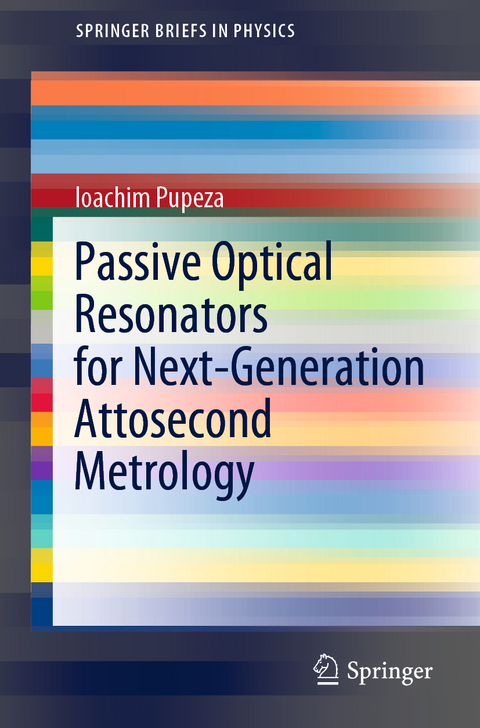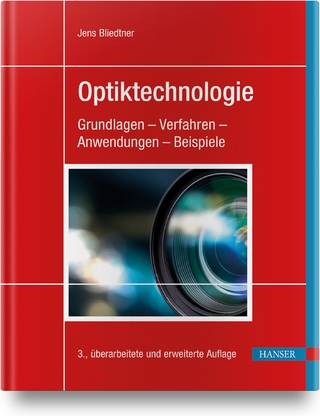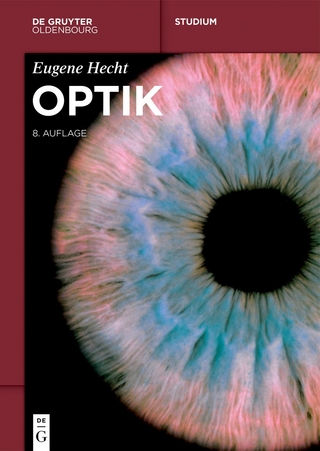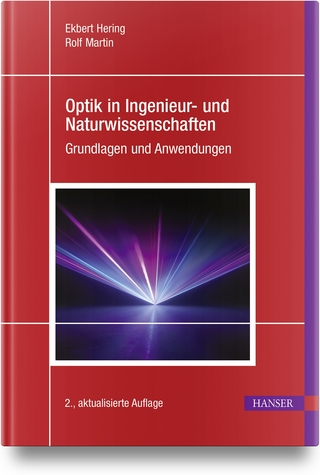
Passive Optical Resonators for Next-Generation Attosecond Metrology
Springer International Publishing (Verlag)
978-3-030-92971-8 (ISBN)
This book introduces readers to the development of a new generation of high pulse-repetition frequency instruments for multi-dimensional attosecond-resolution photoelectron spectroscopy (attosecond PES). It investigates the power scaling of femtosecond enhancement cavities for efficient intracavity high-harmonics generation (HHG). Further, it derives and verifies advanced resonator designs that feature large illuminated spots on all mirrors, which mitigate both intensity- and thermally-induced enhancement limitations.
The dynamics of a high-finesse, passive resonator in the presence of a highly nonlinear optical process such as HHG are quantitatively investigated, both theoretically and experimentally. These investigations are instrumental in achieving the holistic optimization of the XUV source reported on here, which for the first time reached intracavity HHG conversion efficiencies comparable to those achieved in single-pass setups with a similar gas target.
Coupling out the XUV beam from the enhancement cavity by purely geometric means, employing both the fundamental and higher-order transverse Gaussian modes, is studied. This offers the advantages of robustness, low distortion to the participating pulses, and photon-energy scalability. Last but not least, the author provides a range of proof-of-principle attosecond angle-resolved PES experiments.
The book gives an outlook on the possible future development of cavity-enhanced HHG and an extensive discussion on the generation of isolated XUV attosecond pulses via intracavity wavefront rotation.
Ioachim Pupeza studied Electrical Engineering and Pure Mathematics at the Technical University Braunschweig, Germany, and spent one year as a Visiting Fellow at Harvard University, Cambridge, USA. He completed his PhD in Experimental Laser Physics at the Ludwig Maximilian University Munich (LMU, Germany) and the Max Planck Institute for Quantum Optics (MPQ, Germany) in 2011. After a stay at the Institute of Photonic Sciences (ICFO, Spain) as a postdoctoral researcher, he returned as a research group leader at the MPQ and LMU and completed his Habilitation in 2020.
Dr. Pupeza's current research focus lies on the development of tools and techniques for the controlled generation and measurement of broadband light waveforms, on the level of the individual oscillations of their electric field, and with sensitivity and precision approaching the fundamental limits.
Introduction.- Cavity-enhanced high-order harmonic generation for attosecond metrology.- Next-generation enhancement cavities for attosecond metrology - an outlook.
| Erscheinungsdatum | 03.02.2022 |
|---|---|
| Reihe/Serie | SpringerBriefs in Physics |
| Zusatzinfo | XII, 62 p. 28 illus., 27 illus. in color. |
| Verlagsort | Cham |
| Sprache | englisch |
| Maße | 155 x 235 mm |
| Gewicht | 130 g |
| Themenwelt | Naturwissenschaften ► Physik / Astronomie ► Optik |
| Technik ► Elektrotechnik / Energietechnik | |
| Schlagworte | Attosecond angle-resolved photoelectron spectroscopy • Attosecond angle‐resolved photoelectron spectroscopy • Attosecond metrology • Attosecond metrology • Attosecond-resolution photoelectron spectroscopy • Attosecond‐resolution photoelectron spectroscopy • Cavity-enhanced high-harmonics generation • Cavity‐enhanced high‐harmonics generation • Femtosecond enhancement cavities • Femtosecond enhancement cavities • Phase-stabilized modelocked oscillators • Phase‐stabilized modelocked oscillators • Space charge effects • Space charge effects |
| ISBN-10 | 3-030-92971-X / 303092971X |
| ISBN-13 | 978-3-030-92971-8 / 9783030929718 |
| Zustand | Neuware |
| Haben Sie eine Frage zum Produkt? |
aus dem Bereich


